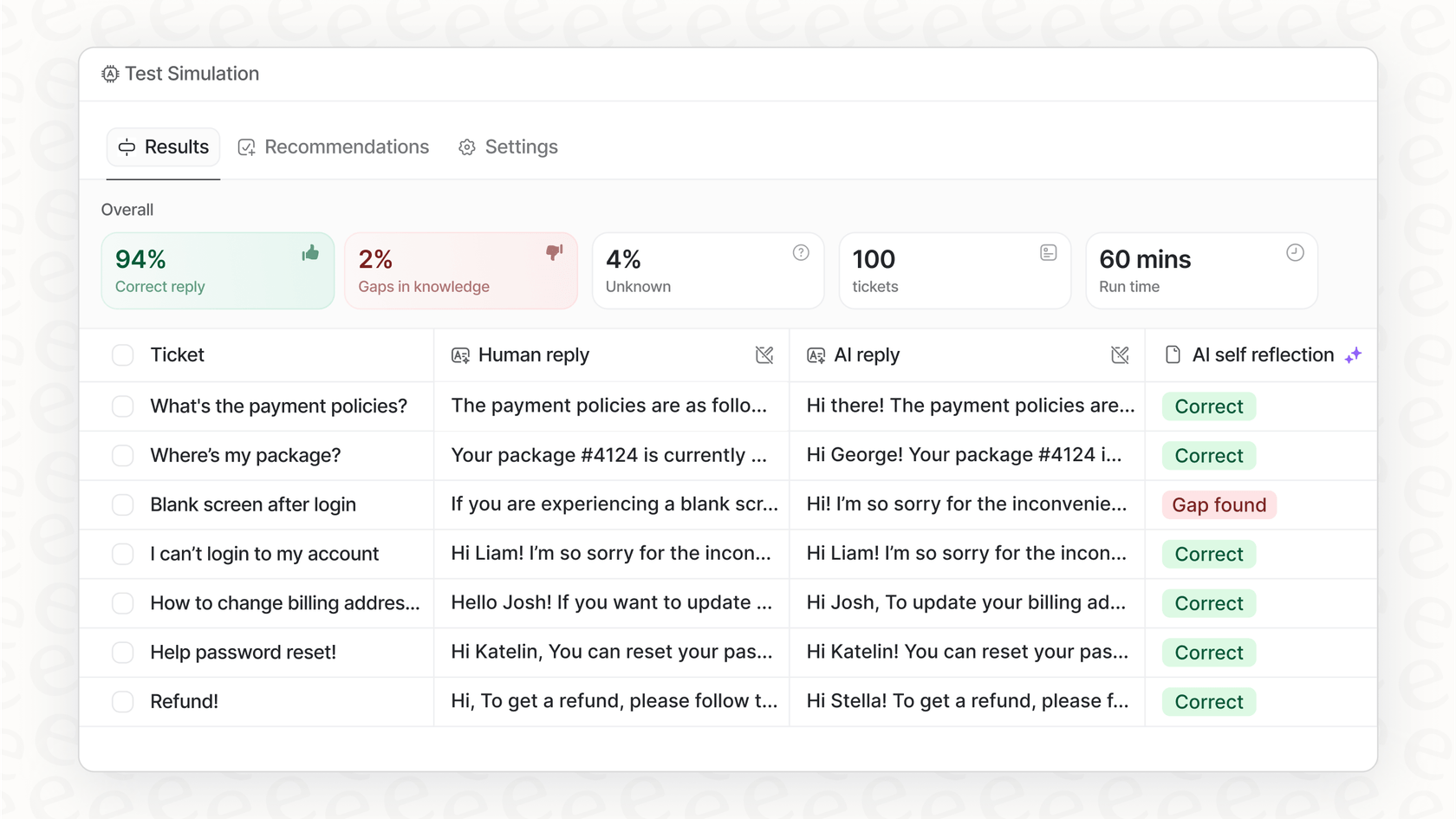
If you've been trying to find clear info on Worknet AI pricing, you’ve probably realized it’s not as simple as checking a webpage. Figuring out the real cost of an AI platform isn't just about the monthly fee. You have to dig into its features, how it’s deployed, and watch out for any hidden costs that might bite you later on.
Worknet markets itself as a proactive AI chat tool designed to help you grow revenue, but good luck finding a straightforward price. The information is scattered across different marketplaces and old blog posts, which can get confusing fast. We’ve done the legwork for you, pulling together all the details to give you a clear, honest picture.
In this post, we'll walk through Worknet's main features, take a hard look at its pricing, and point out a few key limitations. We’ll also show you an alternative that offers the transparency and control that many teams are looking for in an AI tool.
What is Worknet AI?
Worknet’s whole deal is being a proactive AI chat platform built to grow revenue. The goal is to engage with your users to improve trial conversions, keep customers around longer, and spot opportunities for expansion. The heart of the product is an in-app AI chat that learns from your official documents as well as the messy, uncurated stuff, like old support tickets and Slack conversations.
Their strategy is to turn every conversation, whether it's with a sales lead or a customer needing help, into a moment that could drive revenue. Worknet does this by connecting with key business tools like Salesforce and Zendesk, creating one channel where the AI can act as an extension of your team.
How Worknet's core features impact pricing
Before we get into the money talk, let’s look at what you’re actually paying for. Here’s a rundown of Worknet’s main features and what you should expect from a modern AI platform.
Proactive, agentic chat
Worknet talks a lot about its "agentic framework," which is a fancy way of saying it’s more than a simple Q&A bot. The idea is that it can listen to recordings of your best sales calls and learn to copy the tone and tactics of your top performers. This lets it make decisions on the fly, automate lead qualification, and handle objections all on its own.
Emulating sales calls is a cool concept, but it depends on having a library of "perfect" conversations for the AI to study. It also means you have to put a lot of faith in the AI to get things right. In contrast, a platform like eesel AI gives you a powerful, self-serve prompt editor. This lets you spell out the AI's exact tone, personality, and the specific actions it can take, giving you direct control from the very beginning without needing a stash of call recordings.
Deep integrations
A big part of Worknet's appeal is its ability to integrate with platforms like Salesforce, Zendesk, and Slack. The goal is to create a smooth workflow where the AI can create tickets, update CRM fields, or ping a human expert on Slack when a conversation gets too complex.
Deep integrations are a must-have for any serious AI tool, but the setup process is what really separates the good from the great. Some platforms need a lot of developer time to get all your systems talking to each other. On the other hand, eesel AI offers over 100 one-click integrations. You can connect your helpdesk, knowledge bases, and chat tools in minutes, not months, without having to overhaul your current setup.
How a focus on revenue generation influences pricing
Everything about Worknet is built to drive revenue. Its website is full of features designed for trial conversion, expansion, and retention. A key piece of this is the "Support-to-Sales Conversion" feature, which is trained to spot when a simple support question is actually a hidden upsell opportunity. This revenue-first mindset is central to how they position themselves and justify their pricing.
Deconstructing the Worknet AI pricing model
Alright, this is where things get a bit messy. Worknet doesn’t have a public pricing page on its website, which is always a bit of a red flag when you're trying to compare your options. This forces you to either hunt through third-party marketplaces or schedule a call with their sales team, making it tough to plan a budget.
The per-user, per-month fee
After some digging on the Salesforce AppExchange and TrustRadius, a clearer picture starts to form. Both sites list Worknet’s price at $75 per user, per month.
But here's the catch: the Salesforce listing also mentions a minimum annual price of $12,000. That's a pretty high bar to clear. If you're a smaller team or just want to try the tool without a massive upfront commitment, this is a major obstacle. An annual contract locks you in before you’ve even had a chance to prove the tool’s value for your own use case. It’s a big ask for a tool you haven't even tried yet.
The performance-aligned model
Just to make things more confusing, a blog post from Worknet mentions a completely different pricing model. This one combines "Success Fees" with "Usage Tiers." In theory, you'd pay a percentage of a successful outcome (like a booked demo) on top of a fee based on how many conversations you have.
| Feature | Per-User, Per-Month Model | Performance-Aligned Model |
|---|---|---|
| Base Cost | $75 per user, per month | Based on "Usage Tiers" (unspecified) |
| Additional Fees | None specified (possible hidden costs) | "Success Fees" (% of a successful outcome) |
| Minimum Commitment | $12,000 annually | Not specified |
| Predictability | High (if team size is stable) | Low (bill varies with performance) |
| Source | Salesforce AppExchange, TrustRadius | Worknet Blog Post |
While a "pay-for-performance" model sounds nice, it can lead to some seriously unpredictable bills. What happens if you have a killer month and the AI books a ton of demos? Your costs could shoot through the roof without warning. This model basically penalizes you for scaling successfully, which is the exact opposite of what you want from a growth tool.
This is where a transparent pricing model really makes a difference. For example, eesel AI's pricing is clear and predictable. Plans are based on a set number of monthly AI interactions, not how many seats you have or some vague "success fee." You know exactly what your bill will look like, and you’re never punished for being busy. Plus, with flexible month-to-month options, you can start small and cancel anytime.
What's missing from the Worknet AI pricing information?
The biggest problem with Worknet’s pricing is the lack of clarity. It's not clear if customers are paying per user, per performance, or some hybrid of the two. There's also no information about what features are included in that base price. Things like the call ingestion feature or certain integrations could easily be expensive add-ons that you only find out about once you're on a sales call.
Key Worknet AI pricing limitations and the self-serve alternative
Worknet's sales-first approach has some real downsides. Here’s why a self-serve model often makes more sense for modern teams.
High barrier to entry and lack of flexibility
That $12,000 minimum annual contract is a huge risk, especially for teams that want to start small, test a tool, and scale up once they see it's working. You're locked in for a full year before you’ve even confirmed it’s the right fit. On top of that, per-user pricing just doesn't scale well. As your support team grows, your costs go up with every single agent you add.
The "black box" problem: No way to test before you buy
Because Worknet is sales-led, you can't just sign up and try it for yourself. Their site doesn't mention a free trial or a sandbox environment, which means you have to make a decision based on a polished sales demo.

This is where a fully self-serve platform like eesel AI really stands out. You can sign up for free and get an AI agent up and running in a few minutes. Even better, eesel AI’s powerful simulation mode lets you test your AI on thousands of your own past tickets. You can see exactly how it would have responded, get accurate predictions on resolution rates, and tweak its behavior before it ever talks to a real customer. This takes all the risk out of the adoption process.
Limited control over rollout
With a sales-led tool, it’s often unclear how much control you have over the launch. Can you limit the AI to specific types of tickets or certain customer segments to start? The lack of self-serve controls suggests that a gradual rollout might require pricey professional services or a lot of back-and-forth with their team.
This video explores how generative AI tools can enhance customer support and success functions, which is relevant to the features discussed in the Worknet AI pricing guide.
With eesel AI, you have total control from a simple dashboard. You can create specific rules to automate exactly which tickets the AI handles. You can start with simple, high-volume topics, prove the ROI to your team, and then expand the AI's role as your confidence grows.
Worknet AI pricing: Look for transparency and control
While Worknet AI has some interesting features aimed at revenue, its Worknet AI pricing model is confusing and lacks transparency. It comes with a high upfront cost and doesn't offer the flexibility that most teams need to adopt AI successfully.
The best AI tools let you start small, test with confidence, and scale at a predictable cost. You shouldn't have to settle for a model that locks you into a long-term contract before you’ve proven its value, or one that punishes you for your own success.
Start with a smarter, more transparent AI
Ready for an AI support agent that actually puts you in the driver's seat? With eesel AI, you can go live in minutes, test everything risk-free in simulation mode, and enjoy simple, predictable pricing that grows with you.
Explore eesel AI's pricing or start your free trial.
Frequently asked questions
The blog highlights two potential models: a per-user, per-month fee of $75 with a $12,000 minimum annual contract, and a performance-aligned model combining "Success Fees" with "Usage Tiers." The exact application or coexistence of these different pricing structures is not clearly defined publicly.
Yes, public listings like the Salesforce AppExchange indicate a minimum annual price of $12,000. This presents a substantial upfront commitment, especially for smaller teams or those wishing to evaluate the tool's value before a large investment.
The public information does not clearly detail which specific features are included in the base pricing. There is a possibility that advanced features, such as call ingestion or certain deep integrations, could be expensive add-ons not disclosed until a sales consultation.
Worknet does not publicly offer a free trial or a sandbox environment for self-evaluation. This means customers typically make decisions based on sales demonstrations, without the opportunity to test the AI's performance with their specific use cases beforehand.
A per-user pricing model means that your costs will increase directly with every new agent or team member you add to your support or sales team. This structure can lead to less predictable and potentially higher expenses as your organization scales.
A performance-aligned model with "Success Fees" can result in highly unpredictable monthly bills. Your costs could fluctuate significantly based on the number of successful outcomes the AI drives, potentially penalizing you for periods of high performance.
Share this post

Article by
Stevia Putri
Stevia Putri is a marketing generalist at eesel AI, where she helps turn powerful AI tools into stories that resonate. She’s driven by curiosity, clarity, and the human side of technology.






